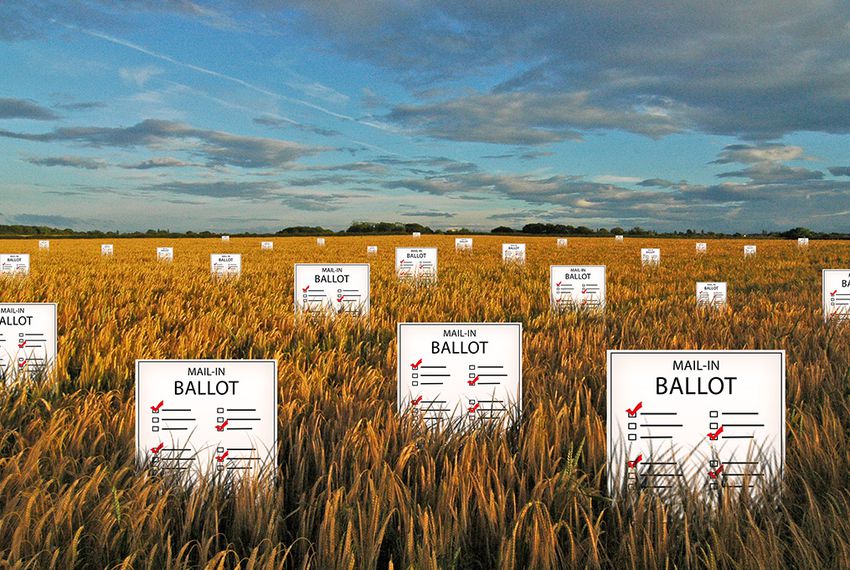This past week in Kentucky, HB 574 was signed into law. Despite the Kentucky legislature consisting of Republican supermajorities in both the House and Senate, the account for Democratic Governors tweeted, “While Republicans like @BrianKempGA are implementing Jim Crow 2.0, yet another Democratic governor just expanded voting rights…”
And the corporate media picked up this talking point with headlines such as “Kentucky Gov. Beshear signs into law bipartisan elections bill expanding voting access” from CNN, “Why Kentucky Just Became the Only Red State to Expand Voting Rights” from the New York Times, and “Democratic Governor in deep-red Kentucky signs bill to expand voting, bucking national trend” from the Washington Post.
Meanwhile, here in Arizona the headlines read “Arizona Republican lawmakers join GOP efforts to target voting, with nearly two dozen restrictive voting measures” under a bold “Voting Rights Under Attack” from CNN, “The next Georgia: Texas and Arizona emerge as voting rights battlegrounds” from the Guardian, and “23 voter suppression bills in Arizona legislature” from KOLD.
Let’s take a look at what the left and liberal media consider “Jim Crow 2.0” in Arizona compared to what they applaud as “expanding voting access” in Kentucky.
Early Voting
In Arizona, early voting begins 27 days before an election.
Under the Kentucky bill, early voting is limited to a mere 3 days – Thursday, Friday, and Saturday during normal business hours (Section 11).
Ballot Harvesting
In 2016, HB2023, which prohibited ballot harvesting, was signed into Arizona law. The Democrat party sued the state over it, claiming it has a disparate impact on minority voters. The case is currently in the Supreme Court.
Under the Kentucky bill, ballot harvesting is prohibited (Section 6).
Vote By Mail/SB1485
In Arizona, no excuse is required to vote by mail and voters can register to automatically receive a ballot for every single election, without having to reapply. SB1485 would remove a voter from this list only after the voter failed to vote in four consecutive elections and fails to respond to a notice. The voter would still be registered, they would just no longer receive a ballot in the mail automatically.
Under the Kentucky bill, an excuse is required to vote absentee and voters must apply within a short window of no earlier than 45 days before an election and no later than 14 days before an election (Section 11).
SB1003
In Arizona, SB1003 clarifies that if a ballot does not have a signature, the county must attempt to contact the voter and if a signature is not obtained by 7PM on election day, it is rejected.
Under the Kentucky bill, an absentee ballot must immediately be rejected if it has no signature (Section 14).
Voter Registration/SB1106
In Arizona, SB1106 would require a county recorder to cancel a voter’s registration upon confirmation the voter has registered in another county or state.
Under the Kentucky bill, a voter’s registration must immediately be canceled upon notification the voter has registered in another county or state (Section 5).
Voter ID/SB1713
In Arizona, voters on the early voter list automatically receive a ballot by mail for every election and do not have to reapply every time. SB1713 requires voters to write their date of birth and either their Arizona driver’s license or voter registration number on their ballot affidavit.
Under the Kentucky bill, a photo ID is required for voting in person and must be provided in the application for an absentee ballot – an application that must be made before every election (Section 41).
Catching the theme? All of these provisions leave Kentucky with a more restrictive election system than Arizona. If proposals in the Arizona Legislature are “Jim Crow 2.0” in the eyes of the democrats and media, then Kentucky would surely be “Jim Crow on steroids.”
If we have learned anything from Kentucky’s passage of HB574, it is that according to the leftist media, election integrity reforms are racist and disenfranchisement when Republicans pass them, but an “expansion of voter access” when a Democrat Governor signs on.
In reality, all of the bills Arizona is considering leave intact the many accessible options available to voters with modest reforms to ensure the integrity of each. They ensure it is simple to register, easy to vote, and hard to cheat – priorities Kentucky’s new law also ensure.


Recent Comments